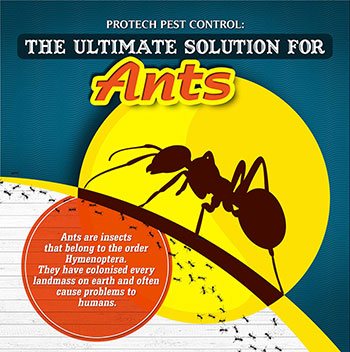Pest-Proofing Your Yard: Tips For Maintaining Exterior Parasites Away
Pest-Proofing Your Yard: Tips For Maintaining Exterior Parasites Away
Blog Article
Authored By-Lauritsen Fyhn
Envision your yard as a haven, an area of peace and beauty. Nonetheless, the presence of exterior pests can promptly disrupt this idyllic photo. What happens if there were simple yet effective methods to keep these undesirable site visitors at bay and protect your garden sanctuary? By following a couple of functional pointers and implementing all-natural approaches, you can produce a harmonious exterior room where your plants can grow uninterrupted.
Natural Parasite Deterrents
To maintain insects far from your yard normally, plant aromatic natural herbs like mint and lavender. These aromatic plants not only include beauty to your garden yet also work as reliable bug deterrents. Insects like mosquitoes, flies, and also some garden-damaging bugs are driven away by the solid fragrances sent out by these herbs. Simply positioning them purposefully around your garden can help create a natural barrier against unwanted bugs.
Along with mint and lavender, consider planting other herbs like rosemary, basil, and lemongrass to better enhance your yard's pest-proofing abilities. These herbs not only act as all-natural repellents but likewise have the added advantage of being useful in food preparation or crafting homemade solutions.
Strategic Plant Positioning
Consider the design of your garden and the types of plants you have to purposefully place them for optimum pest-proofing performance.
Begin by grouping plants with similar resistance to bugs with each other. By doing this, you can produce a natural barrier that prevents bugs from spreading out throughout your garden.
Additionally, positioning pest-repelling plants like marigolds, lavender, or mint near more at risk plants can help protect them. High plants, such as sunflowers or corn, can work as a shield for shorter plants versus bugs like rabbits or ground-dwelling bugs.
Remember to leave adequate room between plants to improve air circulation and lower the threat of diseases that pests could bring.
In addition, consider growing strong-smelling natural herbs like rosemary or basil near vulnerable plants to puzzle insects' detects and make it harder for them to find their targets.
Effective Bug Control Methods
For combating garden parasites effectively, carrying out a multi-faceted bug control method is crucial. Start by encouraging natural killers like birds, ladybugs, and hoping mantises to help maintain insect populaces in check. Presenting plants that attract these beneficial bugs can help in parasite control. In addition, exercising good yard hygiene by removing debris and weeds where insects might hide can make your yard much less friendly to undesirable visitors.
Take into https://edwinaqgwl.snack-blog.com/31939420/keep-an-eye-out-for-damage-in-your-house-triggered-by-sneaky-termites-and-make-certain-to-spot-the-refined-warning-signs-early-to-stop-further-destruction using physical barriers such as row cover materials or netting to safeguard susceptible plants from bugs like caterpillars and birds. Using natural pesticides like neem oil or insecticidal soap can also work against particular pests while being much less dangerous to advantageous bugs and the environment. It's vital to rotate your crops each season to stop the build-up of bug populations that target particular plants.
Routinely inspect your plants for indicators of parasite damage so you can take action immediately. By integrating these approaches and staying watchful, you can efficiently manage garden insects and enjoy a flourishing, pest-free garden.
Conclusion
So, there you have it - with the appropriate approaches, you can keep pesky outside bugs away from your garden and aid your plants grow.
Did attic pest control near me recognize that planting mint has been shown to drive away insects and other bugs, decreasing the demand for unsafe pesticides by approximately 60%?
By integrating natural deterrents and wise growing strategies, you can develop a lovely and pest-resistant yard sanctuary for you to delight in.
